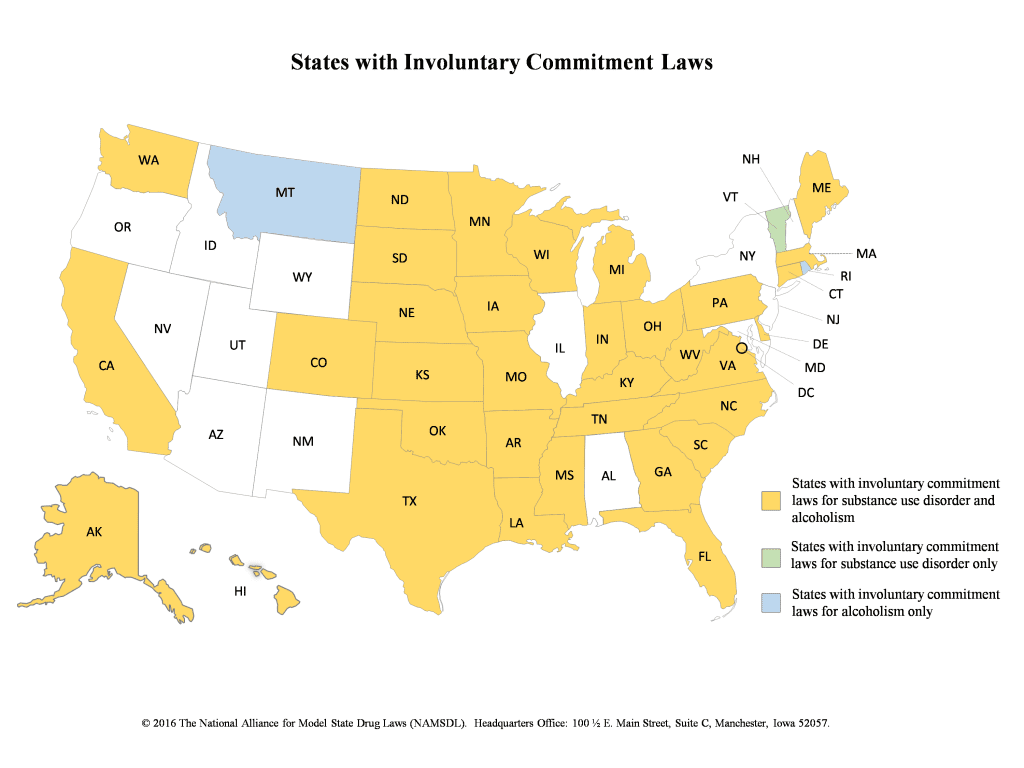Examine This Report about How Does Rehab Help Drug Addicts
The homeowners take an active role in this mode of treatment helping them to take responsibilities and end up being favorable good example. Some Restorative Neighborhoods provide boosted services for pregnant and post-partum ladies and their babies, which include coordination of prenatal/pediatric care. Social Design programs emphasize a sober living environment, peer counseling and case management.

Homeowners are anticipated to be involved in the external neighborhood (through work, education, volunteer activities, etc.) Eligibility: For all three kinds of property services, people, eighteen years and older who remain in early healing from alcohol and/or other drug addiction. Priority is offered to people with specials needs, cultural and linguistic minorities, homeless people, injection drug users, individuals involved with the criminal justice system and persons with or at danger for HIV/AIDS.
These programs supply a safe and structured healing environment where ladies might acquire residential substance addiction treatment services while still maintaining custody and care of their children. Reunification with children can occur while the mother is remaining at the program. Eligibility: Women with kids who remain in early healing http://eduardocdjj089.trexgame.net/a-biased-view-of-how-long-is-drug-rehab-torn-game and need help in establishing and maintaining life skills essential to accomplish drug free living.
The 15-Second Trick For Where Do Celebrities Go For Drug Rehab
Programs offer shelter, coordination and case management of substance dependency treatment and other services for homeless families in order to support and sustain sobriety. Eligibility: The targeted population is recognized as homeless caretaking parents or pregnant females, referred by the Department of Transitional Support, who have physical custody of a minimum of one child and who have a persistent compound addiction problem.
Youth Residential Programs offer short-term domestic corrective services to youth in between the ages of fourteen and eighteen years who need a supervised environment to reinforce their just recently acquired sobriety - how to open a drug rehab business. Includes diagnostic, therapy, educational and pre-vocational, leisure, and HIV/AIDS related services. Eligibility: High-risk youth in between 14 and 18 years of age who are experiencing emotional/ behavioral, family, developmental and/or social dysfunction as an outcome of their alcohol and other substance abuse.
Outpatient Counseling offers treatment for grownups and adolescents, their families, and/or their better halves who are impacted by the use of alcohol or other drugs. Clients are helped in acquiring and maintaining skills for a substance-free lifestyle. Solutions include assessment and treatment preparation, private, group, and household counseling. Eligibility: Anybody with concerns about a substance addiction problem, or a family member/significant other who has issues about somebody else's compound addiction problem.
Which Drug Rehab Does Tommy Hall Work For In Sacramento Can Be Fun For Anyone
Day Treatment and Intensive Outpatient Treatment are more extensive than Outpatient Treatment. Programs offer each client with numerous hours of counseling each day, up to 4 days a week including: specific, group and household therapy, regression prevention, communicable disease avoidance, case management, and support of making use of self aid groups.
Acupuncture and healing upkeep programs supply services for individuals with histories of substance dependency that need treatment for mild to moderate withdrawal signs. Provider consist of restricted medical screening and consumption, motivational counseling/case management and acupuncture treatments. Eligibility: Open to customers with mild to moderate withdrawal signs. Service is not appropriate for customers in requirement of a medically monitored detox.
These programs consist of individual, family, and group therapy and case management services. Eligibility: Customers should fulfill the criteria of pathological gambling. Opioid Treatment offers clinically kept track of treatment services for customers who are addicted to opiate drugs such as heroin or discomfort medications and have a history of persistent regression. Opioid Treatment services combine medical and medicinal interventions (such as methadone or buprenorphine) with professional outpatient counseling, education, and trade services (how to involuntarily commit someone to drug rehab).
The Buzz on Drug And Alcohol Rehab In Tulsa How Foundation Careers
Aftercare/ Recovery Support Services provide case management services to assist link people and families to community supports such as self-help, housing, educational/vocational services Rehabilitation Center and work. The Massachusetts Department of Public Health Bureau of Compound Addiction Solutions supports 7 Peer Healing Support Centers throughout the Commonwealth. These centers, located in Brockton, Greenfield, Lawrence, Marlborough, Roxbury, South Boston, and Worcester work as safe locations for individuals in recovery from substance use disorders to support each other's recovery.
Considering that 2006, Massachusetts has actually been a leader in the development of Healing High Schools. These schools focus on fulfilling both the educational and recovery associated needs of trainees with compound use conditions, by providing a safe and helpful alcohol and drug free environment. Healing schools have actually been revealed to Addiction Treatment Facility reduce trainee's rates of regression and increase their graduation rates.
The general goal for Supportive Case Management is to help adults and/or households in recovery to help them achieve self-sufficiency. This objective is achieved through case management services within an alcohol and drug-free living environment that reinforces recovery through establishing community-based supports to keep continuous objectives in the recovery procedure.
6 Easy Facts About What Are The Benfits Of Coming Mom And Child Together During Drug Rehab Shown
Eligibility: Men or females who have been sober for a minimum of three (3) months, and have a seriously restricted ability to live separately since of a lack of earnings, decreased social abilities, and/or inadequate social assistances. Neighborhood Real estate programs recognize the targeted population as homeless families and people affected by compound addiction.
The Institute for Health and Recovery at (617) 661-7277 coordinates access to the Community Housing Programs. Community based case management programs offer support services for people throughout the course of recovery and aftercare. Case management services enhance access to care, provide additional assistance for customers to enhance treatment outcomes and assist clients establish community contacts and supports for long-term recovery.
Homeless Services offer compound addiction services to homeless individuals with alcohol and other drug problems. The majority of these services are provided within the homeless shelter system. Drug Abuse Shelters for Individuals Compound Abuse Shelters for People (SASI) and the Pine Street Inn Night Center supply shelter for compound abusing homeless individuals whose habits is difficult to manage and less suitable for shelter in the basic shelter system due to their current compound usage - what to say to someone in drug rehab.
The Basic Principles Of Where Is Rsat Drug Rehab Located
PDPR is a HUD-funded transitional helpful real estate program that offers subsidized spaces with some case management services to individuals in early healing, mainly after detoxing. The intent is to bridge, in the short term, the time between discharge from detox and admission into domestic treatment, transitional or permanent housing. Eligibility: Homeless individuals age 18 and older referred by a public ATS (detox) program, a homeless shelter, or outreach employee.
The McKinney definition consists of individuals living either: on the streets; in a cars and truck; in a shelter; in a transitional real estate program having originally come from the streets or a shelter; and, those at immediate threat of homelessness due to a discharge or eviction within one week. The Bureau of Substance Dependency Services oversees the provision of substance addiction education and treatment alternative sentencing programs for those convicted of first or second offenses of driving under the influence.

The Motorist Alcohol Education (DAE) programs are available to those individuals who accept the alternative sentencing sanction as specified within Massachusetts General Laws for the offense of driving under-the-influence. Particularly, each DAE program participant is provided with a structured group where they get educational material to help them identify and comprehend alcoholism problems and drinking-and-driving behaviors.
